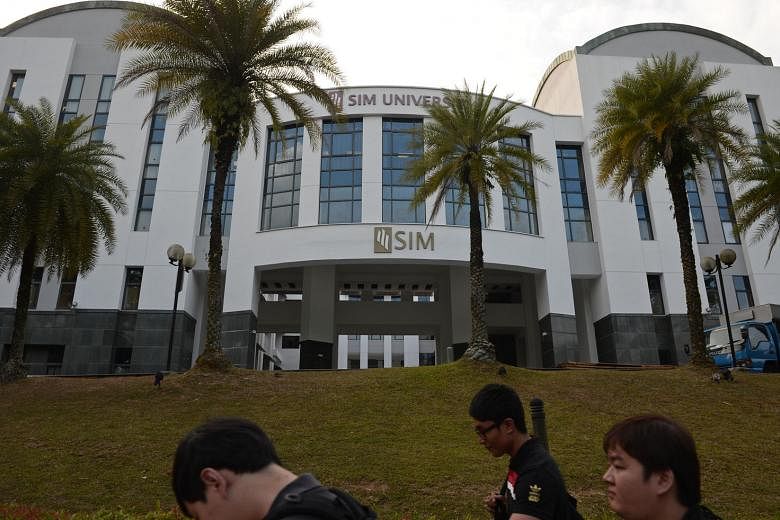SINGAPORE - The renowned German and Swiss system of apprenticeship - where students take on jobs and study for degrees concurrently - will be launched at two universities this year.
Students keen on careers in seven growth sectors, including information security and hospitality business, can go to work in companies and receive sponsorship to study for a degree at the Singapore Institute of Technology (SIT) or SIM University.
SIT will offer the SkillsFuture Work-Study Degree Programmes, as they will be called, in information security, software engineering, hospitality business, electrical power engineering, and civil engineering.
UniSIM's programmes will be in the areas of finance and business analytics.
The 12 partner organisations which comprise a mix of local companies, multi-national corporations and government agencies such as the the Cyber Security Agency of Singapore, will not just offer internships, but co-develop and co-deliver the degree programmes.
They will also sit on the admissions panel to select students for the programmes.
The programme is targeted at students heading to university this year, as well as those currently enrolled. But working adults interested in the programmes may also apply.
Admission will not be based solely on academic grades. The personal aspirations of applicants will also count.
A total of around 65 places will be made available in the first year of the programmes.
The programmes will be structured to suit the companies' needs. Students can work few days a week and attend classes one or two days a week or alternate between semesters of work and study.
Minister for Education (Higher Education and Skills) Ong Ye Kung, who announced the new programme at SIT's graduation ceremony this afternoon, said such applied degree pathways combining work and study were needed to support the increasing proportion of degree holders in the Singapore population.
Referring to the Government's plan to increase the university cohort participation rate to 40 per cent by 2020, Mr Ong said that when the cohort participation was low and courses were not so diverse, employers were quite prepared to hire most graduates even if there were some skills mismatches.
"They did so on the basis that this was a select group which made it to university under our stringent education system," he said.
But he cautioned that going forward when the cohort participation reaches 40 per cent, with much more diverse talents and skillsets, employers need to ensure a good match between skills of the graduates they hire, and organisational needs.
"In a more competitive climate, they also want to be assured that their fresh hire is a young talent who can integrate well into their organisation, enjoys the nature of work, is passionate or deeply interested in the industry they are in, and enthusiastic and curious to learn more," he stressed, noting that this is why internships, attachments, and industry projects have become relevant and sought-after by students.
"It is as much a good learning opportunity for students, as it is an avenue for employers to spot talent," he said, congratulating SIT graduates, many of whom had landed jobs after interning with firms for eight to 12 months.
Of the 82 accountancy graduates ,who were the first group of SIT students to go on extended internships, 69 received job offers from the firms they interned with.
SIT's president Tan Thiam Soon expects good response to the programme, especially in sectors such as information security which are popular with young people.
"We already have good outcomes from our integrated work-study programme where students do longer and more structured internships. The SkillsFuture degree programmes are the next step in the evolution.
"Students get paid and get to study for a university degree at the same time. Studying in the real-world setting is powerful. It ensures that the skills and knowledge you acquire are directly relevant to the job and industry you are in."


